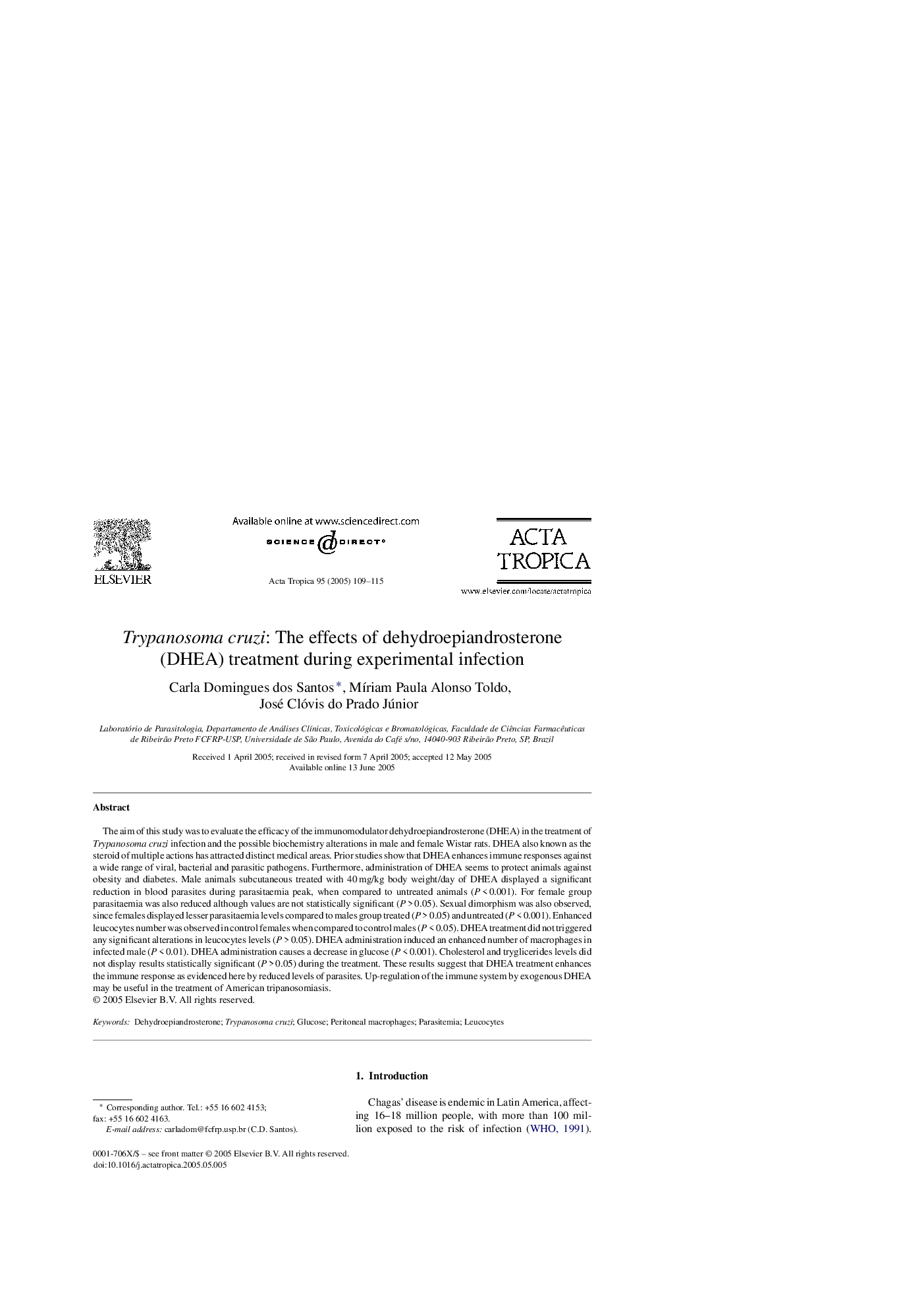| Article ID | Journal | Published Year | Pages | File Type |
|---|---|---|---|---|
| 9274355 | Acta Tropica | 2005 | 7 Pages |
Abstract
The aim of this study was to evaluate the efficacy of the immunomodulator dehydroepiandrosterone (DHEA) in the treatment of Trypanosoma cruzi infection and the possible biochemistry alterations in male and female Wistar rats. DHEA also known as the steroid of multiple actions has attracted distinct medical areas. Prior studies show that DHEA enhances immune responses against a wide range of viral, bacterial and parasitic pathogens. Furthermore, administration of DHEA seems to protect animals against obesity and diabetes. Male animals subcutaneous treated with 40Â mg/kg body weight/day of DHEA displayed a significant reduction in blood parasites during parasitaemia peak, when compared to untreated animals (PÂ <Â 0.001). For female group parasitaemia was also reduced although values are not statistically significant (PÂ >Â 0.05). Sexual dimorphism was also observed, since females displayed lesser parasitaemia levels compared to males group treated (PÂ >Â 0.05) and untreated (PÂ <Â 0.001). Enhanced leucocytes number was observed in control females when compared to control males (PÂ <Â 0.05). DHEA treatment did not triggered any significant alterations in leucocytes levels (PÂ >Â 0.05). DHEA administration induced an enhanced number of macrophages in infected male (PÂ <Â 0.01). DHEA administration causes a decrease in glucose (PÂ <Â 0.001). Cholesterol and tryglicerides levels did not display results statistically significant (PÂ >Â 0.05) during the treatment. These results suggest that DHEA treatment enhances the immune response as evidenced here by reduced levels of parasites. Up-regulation of the immune system by exogenous DHEA may be useful in the treatment of American tripanosomiasis.
Related Topics
Life Sciences
Immunology and Microbiology
Parasitology
Authors
Carla Domingues dos Santos, MÃriam Paula Alonso Toldo, José Clóvis do Prado Júnior,
